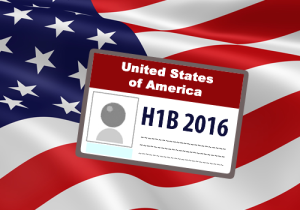New H-1B Bill Seeks Fundamental Changes to the Program
A new bill – The High Skilled Integrity and Fairness Act of 2015 – is poised to be introduced by two Californian legislators: Zoe Lofgren (D) and Darrell Issa (R). The bill proposes multiple changes to the H-1B visa and employment-based immigration, particularly to the H-1B lottery. The highlights of the bill are listed below:
- It will fundamentally alter the way the lottery works. The lottery process is shrouded in mystery, hence a lawsuit to extract information. Theoretically, all petitions are equally treated. This bill proposes giving employers who pay their prospective H-1B employees the most over the prevailing wage the best chance at success in the lottery. For example, an IT company that is willing to pay its Software Developer 200% of the prevailing wage will have an advantage over the IT company that is going to pay its Software Developer a dollar above the prevailing wage.
- Wages would not solely determine a petition’s chance at success in the new lottery. Also taken into consideration would be companies that hire US workers mainly. H-1B dependent employers would be prejudiced in favor of those companies.
- 20% of the lottery H-1B visas would be allocated to small companies (firms with fewer than 50 employees). This is to address the complaint of small and medium companies that a few large companies eat up all of the H-1B visas in the lottery.
- H-1B dependent employers currently have to pay a $60,000 salary to count themselves as exempt from the recruitment process. That threshold would increase to $130,000 under the bill. There may be a loophole if the employer petitions the employee for a Green Card.
- Per country caps on employment-based immigration visas would be eliminated. There are 140,000 employment-based immigrant visas available a year. The nationals of a country cannot obtain more than 7% of that number. By sheer population, that puts nationals of India and China at a major disadvantage, and they have to spend extraordinary times waiting for their Permanent Residence, despite approved employment-based immigration petitions.
- The L-1 visa remains untouched by this bill. There is no mention of filing fees, which are due to increase anyway. Certain companies have been hit with an enormous filing fee for H and L visa petitions.
List most legislation concerning immigration reform, this could go by the wayside. The legislative process may create even more changes or dilute some of the proposals.
